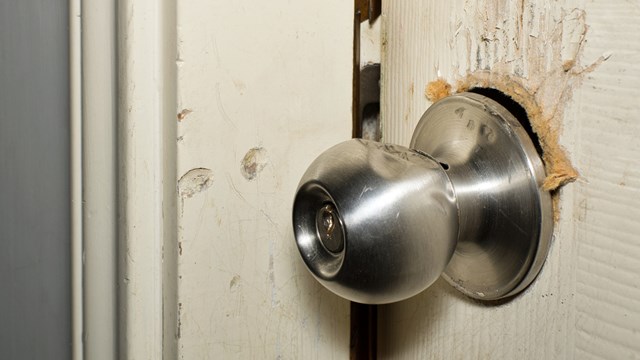
Q. Our condominium building has many basements that are labeled in the plans as "crawlspaces.” They have small access doors to get into them and there are pipes near the floor that need to be walked over, as well as pipes hanging down low from the ceiling that need to be ducked under. Since there is a bit of danger entering the space and walking around, the older residents can't be allowed in there. Because of this, access is limited from the normal association members. Over the years, some of the board members have used these spaces to store personal items and set up small work areas with benches and shelving. This has gone on for decades. Recently a member was disgruntled about another issue and decided to complain about the board members using those spaces, saying either everyone should be able to use them, or no one. There is nothing in the bylaws about use of these spaces. Does the board have the ability to allow certain people to use these spaces and not everyone?
—Crawl Space, or All Space?
A. According to J. David Ramsey, a shareholder with the Morristown-based law firm of Becker & Poliakoff, “A provision in the New Jersey Condominium Act states that:
“The right of any unit owner to use the common elements shall be a right in common with all other unit owners (except to the extent that the master deed provided for limited common elements) to use such common elements in accordance with the reasonable purposes for which they are intended without encroaching upon the lawful rights of the other unit owners.”
“Given your description of your condominium building, it sounds most likely that the crawl space is for the purpose of servicing utilities, vents, and other equipment accessible from that area. It may be that the crawl space does not meet building code or other requirements of law to be occupied. For instance, under the regulations promulgated by the New Jersey Department of Community Affairs under the Hotel and Multiple Dwelling Law – which would include your building – a crawl space is defined as “an unoccupiable area in a building not more than 48 inches in height.” Hence, it may be under this code or other law that the crawl space area is not intended to be occupied by anyone for any reason other than to access the equipment in that space. In that instance, no one should have desks, shelving, etc., in that space. It is doubtful that the intended purpose of a crawl space was for such uses, particularly given your description of pipes both crossing the floor and hanging low from the ceiling and small access doors.
“If, on the other hand, it has a height in excess of 48 inches and could be occupied, if board members are using the space for personal use – not, for instance, for association storage of files, etc. – then it would be improper for board members to reserve that space solely to themselves. In a well-known New Jersey Supreme Court case, Fox v. Kings Grant Maintenance Association, the court stated that:
“Accordingly, although a declaration [master deed] may reflect a clear intent that a board of managers has the broad authority to manage and administer the property, including the common elements and limited common elements, a board cannot grant an individual unit owner the exclusive use of any part of the common elements without the required vote of all unit owners.”
“In essence, what you are possibly describing is the use of a portion of the common elements by certain unit owners that happen to be board members, to the exclusion of other unit owners. That would violate the provision of the Condominium Act cited above as well as our Supreme Court’s decision in Kings Grant.
“The bottom line, based on your question, is that it is unlikely that the crawl space can be lawfully occupied for any purpose. But if it can, it cannot be limited to only certain unit owners.”






Leave a Comment